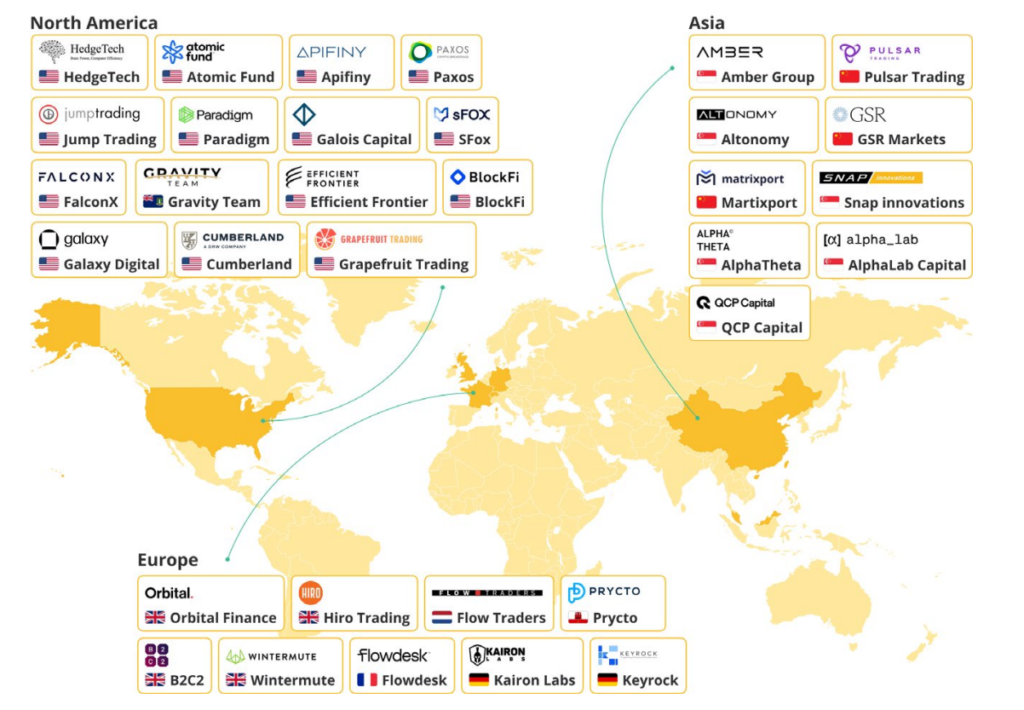Market makers have played a vital role in financial markets, and their importance has only increased in the cryptocurrency space. With growing demand for Bitcoin and Ethereum trackers, market makers have been providing liquidity and reducing spreads, volatility, and enabling fair price discovery. Additionally, they can support the growth of the ecosystem by adding value beyond market making.
Insider Insight with Michael Lie, Head of Digital Asset Trading at Flow Traders
Back in 2017, we saw a growing demand in Bitcoin and Ethereum trackers. As global liquidity provider specialized in ETPs, it was a natural move for us to provide liquidity in products that were tracking cryptocurrencies. We soon started making markets in cryptocurrency spot, futures and ETPs. We were able to leverage our technology stack and trading experience to start trading this new asset class. As the market developed, we started trading options, we became active on decentralized finance protocols, and we also created an OTC business.
What is a role of a market maker in crypto?
Market makers have always been very important for financial markets. It reduces spreads, it reduces volatility and also leads to fair price discovery of the quoted products. Even more so for crypto, where the ability to invest in a project at a fair price can play an important role for the success of a project. Especially for projects where a well-diversified and decentralized distribution of tokens is key, a good market maker will have a big impact.
As we started market making cryptocurrencies, it became apparent that we can add value beyond market making. We support ventures and the growth of the ecosystem with our experience in traditional finance and our capital, which is why we launched our venture fund Flow Traders Capital this year.

How do you view institutional adoption?
For institutional adoption of cryptocurrencies, the two most important factors are the market infrastructure and the state of regulation. Over the last years, a lot has improved on the infrastructure, such as the exchanges where you can trade cryptocurrencies and the custody solutions that are being used. As for the regulation, it’s not fully there yet, but implementation of regulations like MiCA will enable institutions to start adopting cryptocurrencies.
An example of a regulated product that has enabled institutional adaption of cryptocurrencies are crypto ETPs. These are products that are traded on exchanges and track the price of cryptocurrencies. At the same time, these products are regulated and enable institution to gain cryptocurrency exposure, without having to deal with on which exchange they are going to buy the cryptocurrencies and what custody solution they are going to use.
Institutional adoption of cryptocurrencies depends on market infrastructure and regulation. Although much has improved in infrastructure, such as exchanges and custody solutions, regulation is still evolving. The implementation of regulations like MiCA is expected to enable institutions to start adopting cryptocurrencies. Regulated products like crypto ETPs have already enabled institutional adoption by allowing them to gain cryptocurrency exposure without dealing with exchanges and custody solutions. The role of market makers remains crucial in the success of projects with a well-diversified and decentralized distribution of tokens.
This article is an extract from the 70+ page Institutional Demand for Cryptocurrencies Survey co-published by the Crypto Research Report and Cointelegraph Consulting, written by multiple authors and supported by Flow Trader, sFox, Zeltner & Co., xGo, veve, LCX, Finoa, Lisk, Shyft, Bequant, Phemex, GMI.




